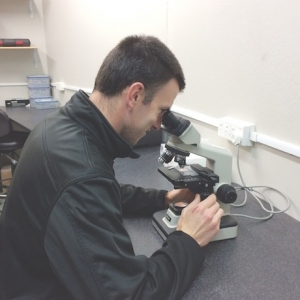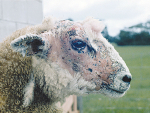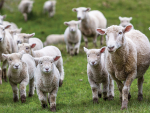IT’S TIME to start doing things better to reduce the number of animals affected by facial eczema, says veterinarian Emma Cuttance.
A survey and sampling conducted during the 2014 facial eczema season on 106 farms throughout the North Island showed that one-third of farms had cows affected by sub-clinical facial eczema damage. The vast majority of these farms had not seen any clinical cases of facial eczema.
The DairyNZ and Sustainable Farming Fund research showed a number of things farmers can do to start preparing for the facial eczema season. The facial eczema ‘season’ will vary depending on farm location and climate, so it’s important to base actions on spore counts rather than certain months.
The key is to put a plan in place and start control early. Every management system for facial eczema has gaps or weaknesses, whether it is zinc sulphate water treatment or fungicide spraying. If those gaps are not identified and addressed, cows will not be fully protected.
It is important to review the situation regularly to check your control method is working. Visitdairynz.co.nz/facial-eczema to work through the recommended management system and to read the facial eczema Farmfact on treatment and prevention.
Pasture spore counting is an excellent tool to identify pasture spore count trends. However, research from 2012 to 2014 found the variability between farms is very large. This is because every farm, paddock and even sections of paddocks, contain a slightly different micro-climate for the spore-producing fungus.
It is possible to have spore counts varying by as much as a 500,000 spores/g pasture or more between farms and even paddocks.
While rainfall, minimum temperatures, humidity, topography and regional spore counts give some indication of spore count trends, when regional spore counts start trending upwards to reach 20,000 spores/g of pasture, it is important to gather a more accurate picture of your farm.
Identify four paddocks representative of the farm and monitor these paddocks regularly for trends in rising spore counts. Use this trend to base management decisions on – it is a preferable method to spore counting a few of the paddocks the cows might graze in the next 24-48 hours.
It is not uncommon for spore counts to decrease unusually early or unusually late. Therefore do not stop the management programme until the spore counts are trending down and are consistently below 10,000 spores/g of pasture for three weeks.
What is FE?
Facial eczema is a disease affecting the liver of cows. While many associate facial eczema with skin peeling and red, sensitive teats, the real damage comes from the 95% of cows that will not show any clinical signs of the liver damage facial eczema causes.
This unseen damage affects milk production and survival in the herd.
www.dairynz.co.nz/facial-eczema
• This article was originally published in Inside Dairy December 2014.


















